FORGOTTEN SOLDIERS V: Reporter’s Diary: Escaping a bomb blast in Borno, losing my manhood in Kaduna
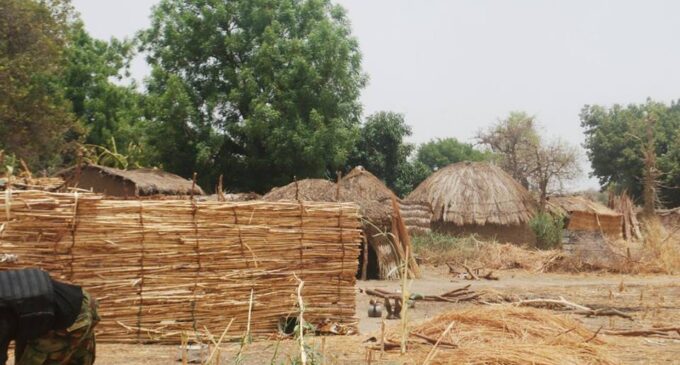
Since 2009, Nigerian soldiers have been going into battle with Boko Haram — with far inferior arms and ammunition — knowing this is the only proof of their love for fatherland. But once they sustain injuries on the battlefield, they soon discover that this love is unreciprocated. ‘Forgotten Soldiers’ is a five-part series exploring the agony of soldiers shattered by Boko Haram’s bullets and mines, and what their pains mean for their loved ones.
Before traveling to Borno state, I dodged nearly everyone who mattered in my personal life. There was no way I was going to tell my siblings or friends outside the media that I was travelling to Borno, stronghold of Boko Haram and former hotbed of terror. It may no longer represent the theatre of war that it was once, but it remains the only state where insurgency still lingers. I was not prepared to subject them to the kind of fear that daredevil journalism had made me accustomed to. But make no mistake: this was a trip I badly wanted. I had wanted it for exactly two years.
If iron sharpeneth iron, as it is said, it must be that daredevilry begets more daredevilry. In the first week of May 2014, I travelled to Chibok, Borno state, shortly after the abduction of nearly 300 girls from the Government Girls Secondary School in the town (Having witnessed the anguish of parents of the abducted girls and the horror in the eyes of three escapees from the incident, I think it is the joke of the century when some people continue to stubbornly claim that the whole Chibok saga is a scam.). The Maiduguri airport was still closed at the time — it is now open and there are only two flights daily, save Saturdays — so I flew to Yola instead before connecting Chibok by road.
Maiduguri itself was my original destination, but a young man named Jasini who was to be my guide (to help circumvent geographical and language encumbrances), withdrew at the 59th minute of the eleventh hour, citing the danger of such trip. It was hard for me to take because Jasini agreed to my proposal two full weeks earlier and he could only wait for me to arrive in Maiduguri before reneging. It turned out a blessing in disguise, though, as making an about-face to head towards Chibok meant I had covered substantial geographical ground in Borno.
From Biu to Damboa and Askira/Uba, I was awestruck by the sacrifice of soldiers on guard in the sweltering sun, searching vehicle after vehicle to pick out insurgents before they could wreak havoc. Each time the car I was travelling in was stopped at a checkpoint, I made sure to exchange banters with the soldiers and put in a word of gratitude for their sacrifice to fatherland.
One told me of how he hadn’t seen his parents in four years, and how they would joke that they had “donated” him to Nigeria. That was at a time when Boko Haram had the edge over the army, so I wondered what would happen to those soldiers if they sustained injuries. I hadn’t left Borno when I decided I would surely be back someday. So, as the only Azman Air Lagos-Maiduguri flight for the day touched down in Maiduguri on the second Sunday in May, I was glad to be finally fulfilling a dream.
Soldiers know they signed for death
The airplane tyres had barely screeched to a halt when I made my most important discovery of my stay: the average Nigerian soldier at the theatre of war is desperate to fight, to “finish off” Boko Haram and restore peace to all of Borno and the entire north-east region.
I didn’t immediately know that the young man who occupied the window seat beside me was a soldier — until I needed to speak with a local for directions and I struck up a conversation with him.
“I am here for a national assignment,” he would say when I asked to know what he was doing around. “I am a soldier; and I won’t leave this state until we’ve finished off these stupid Boko boys.”
In my weeklong stay in the state, I spoke with more than 30 soldiers and not one expressed a different sentiment.
“I will be alive to witness the end of this war,” another one told me. And when I asked how he managed the thoughts of possible death, having initially admitted losing “a couple of friends and colleagues” to mines and gun shots, he added: “Look, I signed for it; I am not going to run away because I knew from start what I was signing for.”
So close to danger
Although people in the south-west typically consider Maiduguri unsafe (so long it is a part of Borno), I honestly thought the risks were minimal. That was the fifth month of the year and no single bomb blast had been recorded, in contrast to 2015 when there were series of attacks, including one, the deadliest, that killed 26 people at a mosque.
But days after I entered town, Boko Haram launched its maiden Maiduguri bomb strike in 2016, injuring four in a bomb blast at a mosque. Since there was no way I could have been at a mosque at 5:45am when the blast occurred, I didn’t feel at all threatened.
But a second blast did send shivers down my spine. Close to noon on Thursday May 12, a suicide bomber pretending to be a staff of the state secretariat failed to gain admittance into the premises but succeeded in detonating an improvised explosive device all the same, killing four and injuring at least 19.
I shuddered when I received a call from Seyi Awojulugbe at the Lagos office of TheCable, seeking confirmation of the blast. My guide and I were at the Post Office area of the city, where the secretariat is located, just two days before. Was that close? Maybe not.
An acquaintance had volunteered to link me with an injured soldier who was recuperating at the University of Maiduguri Teaching Hospital (UMTH), and we were to meet in front of the secretariat — that same secretariat — on Thursday morning. But for no reason, after parting company with my guide in the morning, I went out for breakfast and decided against the UMTH trip. For no reason. Instead, I spent the rest of the day indoors, studying the videos I recorded undercover. In my nine days in Borno, that was the only day I spent fullly indoors.
Found out by a soldier
Were the army looking after its soldiers well, I could possibly be dead by now. Wherever I went in daytime, I always made a stopover in the evening at the Soldiers’ Club inside the Maimalari Barracks, where soldiers, downing bottles of beer and gobbling plates of pepper soup, usually retired to from the forests to keep up with normal living. It was the most exciting part of my Maiduguri stay, and I always looked forward to it because it helped me know what soldiers truly thought about the army’s war against insurgency. I discovered so much, because it was always a gathering of soldiers participating in no-holds-barred conversations.
For example, I learnt from them that while soldiers — the ones who were directly confronting Boko Haram on the battlefield — were desperate for the sect to be wiped out, the same could not be said of the officers, the senior men in the army hierarchy.
“Our bosses in the army know what they are doing,” one told his colleague on my first day at the relaxation centre. “Go and make your research very well: it is in moments of war that dishonest officers make the most money for themselves.”
A third soldier could agree no less, and he cited an example. He was part of a group of soldiers that found an SUV stashed with cash inside Sambisa Forest. Once sighted by troops, the driver of the vehicle made no effort to escape. Instead, he pleaded for mercy. Well, by this soldier’s account, it was a matter that was “killed” by the intervention of some officers. “This man went scot-free,” he lamented. “Now, tell me, who was he working for? And why was it easy for the matter to be killed?”
On Day 3 of my routine visit to the place, a soldier found me out. My guide, a civilian with strong ties to the army, was with me on the first day, but he was nowhere this day. Tall, dark, brawny — and obviously brainy — this soldier, as he would later admit, found out I was “too interested” in the matters of the insurgency. When I asked questions, they were too deep for “an ordinary civilian” to ask; and when others talked and I kept quiet or looked away, my body language still showed I was following the conversation. When he laid hands on Karl Maier’s This House Has Fallen, with which I kept myself company, he branded me a “culprit”.
Two minutes to save my life
“Are you a Boko Haram spy? You better start explaining your mission here before I throw you into the guardroom. And you know that if I shoot you right here, nobody will know what has happened to you,” he said with a softness that screamed both anger and danger.”
It was clear to me that I had been found out, so I sought to speak with him privately.
“I do not have much time, just two minutes, and you had better say the truth,” he warned as we exited the room.
Of course I said the truth, beginning from how my 2014 Chibok trip sparked a desire to find out what was happening to injured soldiers. Did he throw me into the guardroom or shoot me? No chance, because in me, he found a friend to whom he could unload the burden of soldiering in Nigeria. He spoke with me for 15 minutes after getting me to promise that I would not tape our conversation. I obliged, and it turned out one of my most revealing interactions in Maiduguri.
We exchanged phone numbers when we finished, and I am sure he will be reading this, smiling half-heartedly and muttering to himself: “This ‘bloody culprit’ who became my friend!” I’m sure those would be his exact words because they were his parting shot after our conversation.
When a man sheds tears… a journalist is first a human, after all
You may have already read the story here, but reading can never be comparable with hearing, firsthand, the moving story of Hamidu’s battle with death, from which he emerged with life.
I was close to tears — but I wasn’t quite there — when the brainy soldier told me about life in the forest, how a group of six soldiers could be together and five would be blown to death by explosive mines, how soldiers were killed in battle and their bodies were left to “rot away”, how they lost their homes due to years in Borno without rotation, how soldiers were dealing with the psychological trauma of the gory happenings on the battlefront.
The only other time I could have shed a tear was when I ran into the soldier who lost his right eye to fragments of a Rocket-Propelled Grenade (RPG). Sadly, I met him in a situation that made it impossible for me to request for an interview, and all I could do was make do with a video recorded undercover. That eye injury is now 26 months old, and all I saw was a plastered eye and a victim “awaiting referral” abroad. What exactly has the army been doing on this eye for two years and two months?
But it was far more heartbreaking to learn in kaduna that a soldier lost his limbs and was disemboweled by a bomb blast, and then on arriving at the hospital, he was left for dead, dumped at the back of the hospital. Had some soldiers not gone there to urinate, and had he not mustered all the strength left in him to shake his legs to prove that he still bore life, he would surely have died. The tears were coursing down my cheeks before I knew it. Thankfully, I had a handkerchief handy.
Did someone just say ‘where is your manhood, your manliness’? No. The question to ask is, ‘where is your humanity’? That is the question to ask everyone on all the rungs of the army hierarchy whose every action or inaction has contributed to the plight of ‘awaiting referral/treatment’ injured soldiers!
Double-crossed by the army
There were numerous impediments to reporting a sensitive story as this, and there would have been no story to tell had I failed to surmount most of them. But one major failing of this work was my inability to get just one wife of a slain soldier. And I came close a number of times.
One interesting prospect was the case of a soldier killed in battle on June 2, 2015. On June 1, 2016, a friend linked me with the slain soldier’s wife; and even though it was most inconvenient, I offered to travel to Ilese Barracks, Ijebu-Ode, Ogun state, to interview her the following day. I thought it would be significant for me to talk with the woman on the first death anniversary of her husband. It was one full year of chasing yet not getting her husband’s death benefits.
A few hours after speaking with the woman, a native of Plateau state, I received a phone call from a random number; it was from the army headquarters in Abuja and it was to warn me against embarking on the trip.
“We are not saying you should not go but the army will not be comfortable with that kind of trip,” he said in the doublespeak and subtle intimidation that had become the hallmark of public relations in the army.
The army not wanting you in their territory and a source not trusting you enough were a difficult combination. Trip over!
But before the caller hung up, he had betrayed the army’s laxity in compensating families of its fallen heroes. In advancing his argument for opposing my trip, he had said: “We would not want you to do anything that would jeopardize the woman’s chances of collecting her entitlements. When she came to Abuja, I personally supervised the processing of the relevant documents and I am hopeful that by 2017, she would get what is due to her.”
Two full years to settle a woman who had a godfather at the army headquarters! What then would happen to the ordinary woman, the one who has no friends or uncles or fathers in Abuja?
Missing the wife of a missing-in-action soldier
There were three more cases where an interview with a slain soldier’s wife was scuppered. One was not exactly a wife; the wedding was a few days away when her husband-to-be was killed in battle. It was her friend who obstinately blocked all chances of an interview. As for the second woman who lost her husband in battle, it was her late husband’s friend who ensured the interview never materialized.
The third and most painful miss was that of a woman whose husband I knew; I never met him really but we often spoke on phone for the latter part of 2014 and much of 2015. It is now nine months since I or any other member of his family has heard from him. Judging by all the interactions I had in Borno, this is a typical case of a Missing In Action (MIA) soldier. It is unlikely the young man is alive.
The younger of his two brothers had graciously offered to facilitate the interview, to hold at Odogunyan Barracks on the outskirts of Lagos, when the older called to call it off at the last minute.
“Look, you cannot go there!” he blurted on phone. “I am the one who has been taking care of the two children he left behind. If you have anything to give the family, give it to me or give my brother. But I warn you: you cannot go there!”
It was clear that his dissent was never about the interview; he simply believed I had “something” to give the family and I should be handing it to him, not the woman. The difficulty in getting the wife of a fallen soldier was no coincidence. As an investigative journalist, I know that the more some people are desperate to shield a matter from the media, the bigger it really is. Hopefully, I have done enough to provoke someone to unearth this untold story someday.
Twittter: @fisayosoyombo
‘Forgotten Soldiers’ is a five-part series. You may read the first series here, the second here, third here, and fourth here.
Editor’s Note: This project was produced with support from the International Centre for Investigative reporting (ICIR)


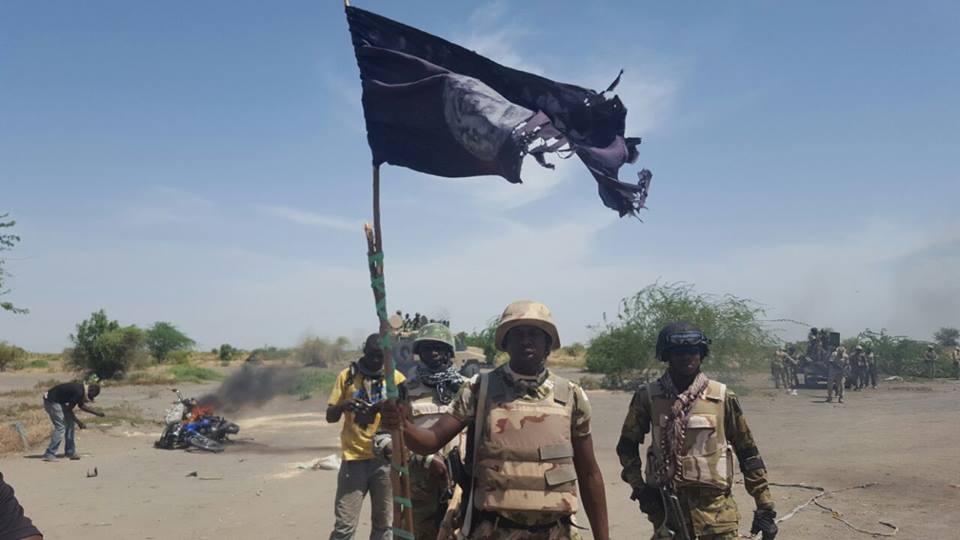
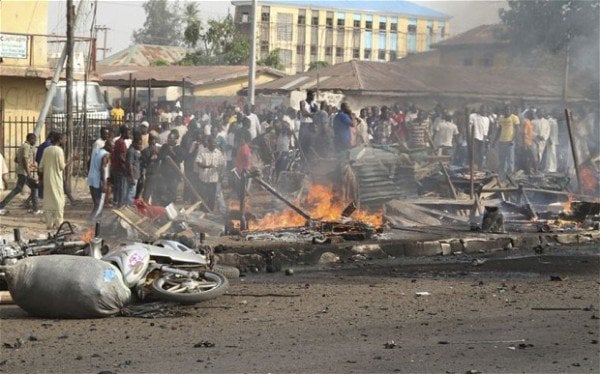
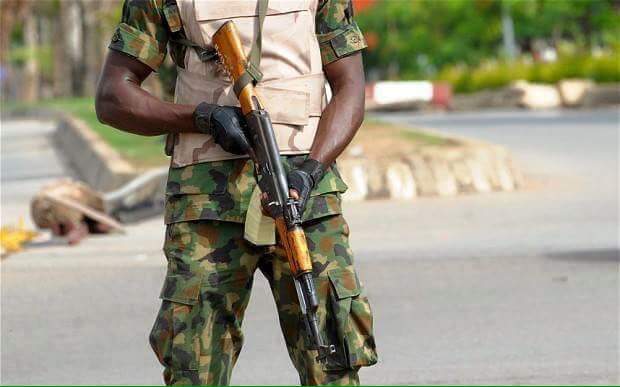

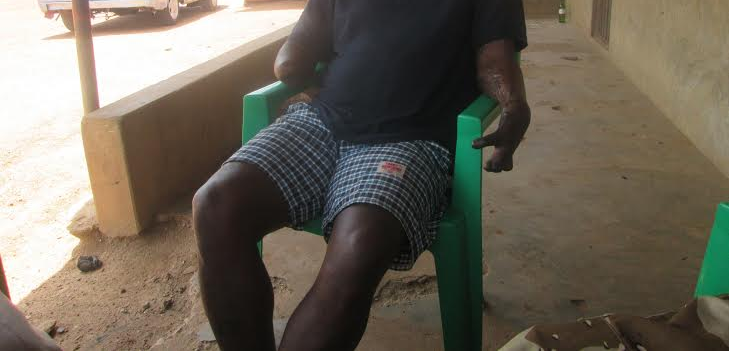







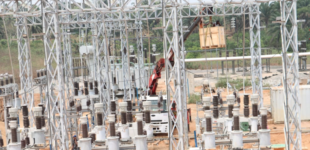






I have followed this series from the 1st part to the last, it is thought-provokin
Pls do put this in print newspapers like punch&thisday and telegraph to have a wider reach. This story and that u investigated at the nigerian ports authority need to be put in print dailies. I dont know how it will be but a collaboration for good cause like this should be front-page news that should run for 1week on print newspapers. pls do that because your investigative journalism is awesome!
I find it hard to believe that the writer is a Nigerian. But I know better. Am humbled and appreciative of the depth of this write up. Keep up the risky work and keep on recording the other side of the news. Posterity will forever be grateful
Thank you